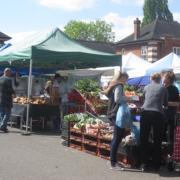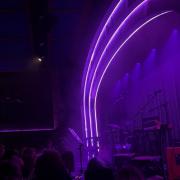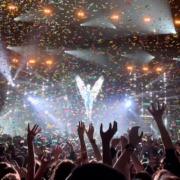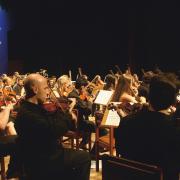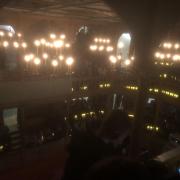
Halloween- Fear? Faith? Or Fallacy?-The Public Attitude
‘Trick or Treat?’ The sound of children excitingly making their way through houses in their neighbourhood is resonated every year on the 31st of October, when children old and young disguise themselves as ghosts, devils, witches, and other entities of supernatural, fantastical and fictional origin to ask friends, family and even strangers for sweets, chocolates and a myriad of other confectionary delights. In today’s neo-capitalist society driven by materialism and affluence, Halloween has exploded as an opportunity for the High Street Supermarkets to cash in from this rather historical and culturally profound festival. At this time of year, bonfires would be lit, fireworks released, fun fairs inaugurated, costumes worn and pumpkins are carved. However, does Halloween possess a far more significantly convoluted, multi-faceted and darker historical meaning behind its commercialised façade of costumes and candy? And what are the public’s attitudes to such stylised celebrations of death and the after-life?
Halloween can be traced back in the pages of history to the ancient Celts residing in pagan pre-Christian Britain. It is believed that Halloween was observed as a devout religious festival, called ‘Samhain’ in Celtic. It was regarded as one of the eight main religious festivals of the astronomically unique Celtic calendar, which differed from the Gregorian calendar which was introduced far later by the Roman Catholic Church. The Celts originated from the Scandinavian and Germanic tribes of central Europe and thus had inherited much of their ancestor’s pagan doctrines and practises. Samhain as a festival marked the beginning of the new Celtic year, celebrated on the 31st of October. The festival was in sacred commemoration and reverence of the dead, and Celts believed that Samhain was the day when the celestial veil between the realms of the dead and the living were at their thinnest, meaning spirits could pass between both macrocosms. During Samhain, Druid priests would light bonfires to ward off evil spirits from the universe of the dead, which they believed were responsible for the cold weather and shorter days. Likewise, many scholars believe that animal and human sacrifices were performed as a plea to the gods for mercy, and acts of sorcery and alchemy would be performed as deeds of worship.
Subsequently, Halloween was reignited in the US where in the late 17th century and early 18th Century, Halloween became synonymous with the Salem Witch trials, and the ideals of Satanism and devil worship. Moreover, the religious denomination known as ‘Wicca’ has also become heavily associated with the pagan festival, with many of their religious ideologies stemming from Samhain belief and tradition. Samhain as a result became known as ‘Hallows Eve’.
During the year 50AD, the Romans conquered Britain as a fully-fledged colony of the empire. The Romans were pagans as well, deifying entities of nature and personifying them for the purpose of polytheistic worship. Thus, the Romans significantly influenced Celtic paganism with their own ideals of Greco-Roman paganism; it is a process scholars refer to as religious transmutation, by which a civilization inherits the religious beliefs of another civilization they have already conquered. One such Roman festival which became merged with Samhain was ‘Feralia’, a festival in late October where the Romans commemorated the dead. Moreover, the festival of ‘Pomona’ was also honoured at this time. Pomona was the Roman goddess of fruits and trees. In fact, the origin of modern Halloween activities such as candy apples and apple bobbing can be traced back to the symbolism of the festival of Pomona where apples were seen as vessels of divine worship for the goddess.
In the early 7th century, Halloween was encountered by the precepts of Christianity whose doctrines could not tolerate paganism or polytheism of any form. Thus, Halloween was abbreviated to ‘All Saints Day’ by Pope Boniface IV in 609AD; as a celebration to honour the deceased saints and martyrs of the Holy Church. Christianity at this time was rapidly developing and spreading throughout Europe and pagan ideologies on evil spirits metamorphosed into the contemplation of saints in paradise.
Besides history, Halloween as an event and as a festival in Merton is an immensely celebrated time of year in Merton. Fireworks nights, bonfire nights, fun fairs and an abundance of other colourful enjoyable activities occur. Just a few examples include the Heather Planting Halloween event at Wyevale in Lower Morden on the 24th of October, the Wimbledon Park 2017 fireworks display on the 4th of November, the Wimbledon Scout Group fireworks display at the Wimbledon Scout Centre in New Malden on the 4th of November and the Morden Park South London fireworks display on the 5th of November. In addition to such familial and communal events, members of the public can participate in trick or treating, bonfire nights, barbeques and Halloween crafts events.
However, many in the Merton community possess the public opinion that Halloween is an unsafe, frightening and dangerous time of year. Enjoyable youthful activities, such as trick or treating, can be utilised by dangerous street robbers and anti-social groups who can rob houses and loot whilst giving the impression of trick or treating. Violence, anti-socialism and burglary are believed by many in the community to be a small drop in the ocean of mischief capable by these groups. In a short interview with a general member of the public, they told me: “The frightening imagery of Halloween can be traumatically scarring to children’s psychologies”. They went onto say “It is a profound waste of time” and added “It can be a financial burden for parents, investing in costumes, sweets and decorations. It is money which can be put to better use”. Furthermore, many also argue that families and their children celebrate Halloween, oblivious of the dark, satanic and sinister origins of the festival.
In contrast, many in the Merton community argue the antithesis, that Halloween is a time of year which stimulates enjoyment, excitement and vibrates an atmosphere of friendship. Many argue that such community events target important social plagues such as depression, laziness and apathy. One member of the general public stated: “It serves as a source of enjoyment and anticipation for many children”.
To conclude, Halloween is certainly a significant time of year in the Western hemisphere and certainly on a local spectrum here in Merton. Many believe it is a fearful and intimidating time of year, where chaotic anti-social opportunists take advantage of such activities as trick or treating to loot, attack and harm the wellbeing of others. Evidently, many are oblivious to the historical context of the pagan festival and do not even understand the quintessence of what they are embracing. Conversely, many argue that the ethos of Halloween is one of friendship and gratification and should be widely practised because of the pleasure it brings to the lives of children. Regardless of the public’s nuances in perspective, the majority of the populous still favour the celebration of Halloween despite the controversy surrounding it.
Mashood Ahmad- RR6





